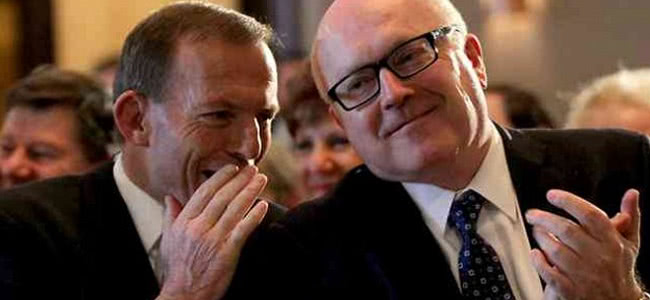They say it’s not what you know but who you know, and that certainly couldn’t be truer in this case where a grant of $275,000 has been granted to for-profit classical record company Melba Recordings despite no funding round or open application process.
Uncovered by Artshub, Arts Minister George Brandis awarded the grant to Melba in April under conspicuous silence with no announcement from the Government, who usually make a big deal when they award grants of any kind to the arts.
This new grant adds to more than $7 million awarded to Melba Recordings since 2004. The Howard government initially awarded it $5 million over five years, though this was cut by the subsequent Rudd and Gillard governments to $500,000 per year before being dropped altogether following community backlash.
It also comes at a time that the contemporary music sector is facing huge slashes to their arts funding under the guise of returning the budget to balance, in addition to cuts to community radio.
The backlash goes all the way back to 2012 after it was revealed that Melba Recordings had received $5m in 2004 and $2.25m in 2009 from the federal government through the Australia Council, but was not required to compete in the competitive grant rounds.
[include_post id=”149951″]
At that time and despite $7 million in funding over the last few years, the label had actually produced very little music and in 2012 their entire back catalogue sold less than $18,000 worth of stock.
By contrast, last April, the Australia Council funded 11 indie record labels as part of the Recording Initiative grant to the tune of $400,000. Chapter Music, Future Classic, Head Records, Hope Street Recordings, Mistletone Enterprises, Rice is Nice, Split Records, Stop Start, SugarRush, Two Bright Lakes and the Wantok Music Foundation were able to use those grants to support 50 new releases.
So how does Melba continue to bypass the normal grants process? With the aid of “very influential friends” who went above the Arts Minister to then-Treasurer Peter Costello.
Following the controversy, it was decided that Melba would no longer be receiving funding outside of the grants process and that any future funding allocation would be “informed by industry need, determined following a sector-wide consultation” through the Australia Council.
[include_post id=”154875″]
Melba Managing director Maria Vandamme labelled critics to the special treatment as ‘jealous’ at the time, claiming her label was trying the get rid of the ‘dumb blonde’ image of Australian music overseas.
But despite the previous controversy, it seems having friends in high places has seen the label receive special treatment once again.
Arts Minister Brandis’ office has revealed that despite that previous decision, this grant was not subject to peer review although the Australia Council was consulted on the decision. What that means is up to interpretation, but it’s probably safe to assume that “consulted” means they were notified of the extraordinary grant.
It also comes at a time that the contemporary music sector is facing huge slashes to their arts funding under the guise of returning the budget to balance, in addition to cuts to community radio.
[include_post id=”404106″]
The Abbott administration plans to cut a total of $87.1 million from the federal arts funding bodies over the next four years, which will mean “fewer and smaller” grants offered to music-makers, artists, and bands.
The Council’s cuts will start with losing more than $10 million from its $222 million annual budget this year, then another $6.4 million over the next three years, tallying to cuts of nearly $30 million.
“It’s a lot and we will be looking at all our programs,” said Australia Council CEO Tony Grybowski of the budgeting squeeze. That most likely includes pulling back on the millions spent gifting Australian musicians with touring and recording opportunities.
It’s a point not lost on the Opposition, with arts spokesman Mark Dreyfus asking Mr Brandis to justify the expense.
“Given the cuts to arts in this year’s budget, now more than ever there is a need for all Commonwealth expenditure to go through proper processes. Senator Brandis needs to explain what process was followed for this funding,” he said.

































